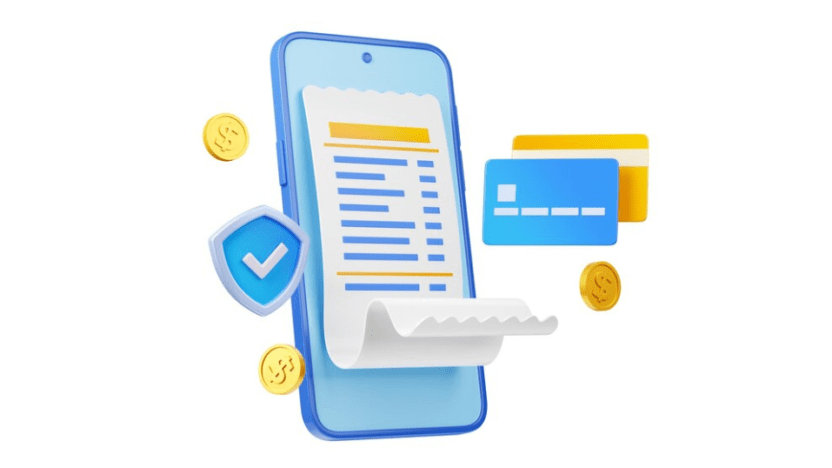Freelancing offers freedom, creativity, and the chance to work with clients worldwide. However, there is always the question of how to get paid as a freelancer, especially for freelancers in Nigeria. When it comes to receiving payments from international clients, many platforms don’t fully support Nigerian accounts, or they impose limitations that make transactions complicated.
For example, PayPal, one of the biggest, if not the biggest, payment platforms in the world, doesn’t work in Nigeria. Nigerian PayPal accounts are restricted to only sending payments and not receiving them. Aside from this, the high transaction fees and other issues might deter you from using other platforms.
How to Write an Invoice as a Freelancer
Before you even start worrying about how to receive your payments, you need to know how to write an invoice for your clients. Invoices ensure you get paid on time and also avoid confusion.
What to Include in Your Invoice
- Due Date: When the payment should be made.
- Your Details: Your name, business name (if applicable), and contact information.
- Client Details: The client’s name, company (if applicable), and email address.
- Invoice Number: A unique number to track payments.
- Services Provided: A clear description of the work you’ve done.
- Amount and Currency: The total payment due, with currency specified.
- Payment Methods: Details on how the client can pay you.
Use free tools like Canva to create polished invoices from templates easily.
Pro Tip
Top Payment Platforms
1. Payoneer
Payoneer is a popular choice for Nigerian freelancers. It lets you receive payments from international clients and transfer the money to your local bank account. It’s particularly useful for platforms like Upwork, Fiverr, and Amazon.
Best For: Freelancers on platforms like Fiverr, Upwork, or Freelancer.
| Pros | Cons |
|---|---|
| Supports multiple currencies. | $29.95 annual fee for the prepaid card. |
| Direct bank transfers to Nigerian accounts. | Transaction fees can add up over time. |
| Competitive currency conversion rates. | Occasional delays during account verification. |
2. Wise (formerly TransferWise)
Wise is known for its low fees and excellent exchange rates. It allows freelancers to receive payments in multiple currencies and convert them into Nigerian Naira.
Best For: Freelancers working with clients who prefer direct bank transfers.
| Pros | Cons |
|---|---|
| Low transaction fees. | Doesn’t support instant transfers to all banks. |
| Excellent currency conversion rates. | Requires setup and initial verification. |
| Highly secure and trusted globally. | Limited integration with freelance platforms. |
3. Skrill
Skrill works well for freelancers handling smaller amounts. It allows direct deposits into your Nigerian bank account. However, its fees are higher than Wise or Payoneer, so it’s better for occasional payments. One of its unique features is that it allows you to enable payments via email for quick transactions
Best For: Freelancers working with European clients or smaller payments.
| Pros | Cons |
|---|---|
| Supports direct transfers to Nigerian banks. | Higher fees than Wise or Payoneer. |
| Quick and straightforward setup process. | Limited advanced features for Nigerian users. |
| Easy integration with online platforms. | Exchange rates can be less favorable. |
4. PayPal Workarounds
Although PayPal has restrictions in Nigeria, you can set up a foreign account linked to a trusted address abroad. This option requires extra effort but allows you to receive payments seamlessly.
Best For: Freelancers whose clients insist on using PayPal.
| Pros | Cons |
|---|---|
| Widely accepted by international clients. | Nigerian accounts cannot receive payments. |
| Extremely easy to use for transactions. | Workarounds may violate terms of service. |
| Secure and fast payment processing. | Limited options for direct withdrawals locally. |
5. Flutterwave
Flutterwave is a Nigerian payment platform designed to simplify receiving payments for freelancers and businesses across Africa. Its ease of use and focus on security make it an excellent choice for handling regional and global transactions.
Best For: Freelancers handling African or regional transactions.
| Pros | Cons |
|---|---|
| Easy setup for direct local transfers. | Limited adoption compared to global platforms. |
| Highly secure and designed for Nigerian users. | Transaction fees may be higher for smaller sums. |
| No need for foreign accounts. | May not be preferred by international clients. |
How to Set Up Your Payment Accounts
Once you’ve chosen a payment platform, setting up your account is the next step. Here’s a quick guide:
- Register with accurate details: Use your full name and a valid ID for verification.
- Link a bank account: For platforms like Payoneer or Wise, connect a Naira or dollar account, whichever you prefer.
- Verify your account: Most platforms require identity verification by uploading documents like a passport or utility bill.
- Test with small transactions: Before handling large payments, test the system with smaller amounts.
This process ensures you’re ready to receive payments without delays.
Tips to Ensure Smooth Payments
Here are some tips to avoid problems like late or missing payments:
- Set Clear Terms: Discuss payment methods, timelines, and fees with clients upfront.
- Request Deposits: Ask for a portion of the payment before starting a project.
- Use Milestone Payments: Break big projects into stages, with payments tied to each milestone.
- Follow Up Politely: If a payment is late, send friendly reminders with a copy of your invoice.
Conclusion
Getting paid as a freelancer in Nigeria doesn’t have to be stressful. By understanding your options and setting up the right accounts, you can receive payments smoothly. Remember to explore platforms like Payoneer, Wise, and Skrill, and also consider all the alternatives.
Now that you know how to get paid as a freelancer, it’s time to focus on building your freelancing career. Check out our blog on possible freelancing careers you can pursue.
Frequently Asked Questions
Payoneer or Wise are great options due to their low fees and high transfer limits.
Yes, if you use trusted wallets and platforms. Be mindful of market fluctuations.
Choose platforms with lower fees like Wise, and withdraw funds in bulk.
Yes, platforms like Payoneer, Skrill, and Flutterwave allow direct transfers.





